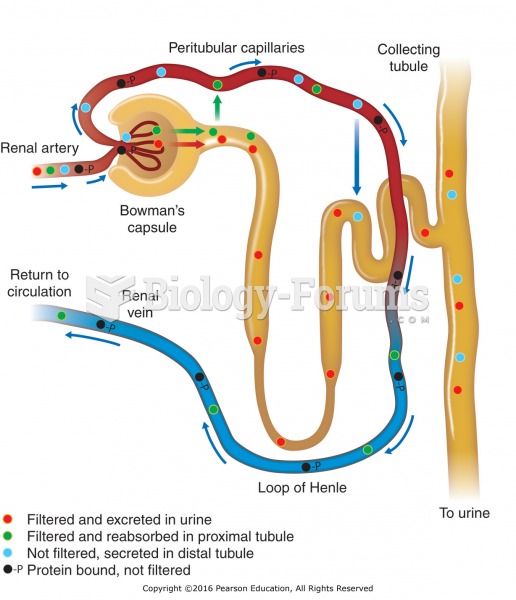|
|
|
Studies show that systolic blood pressure can be significantly lowered by taking statins. In fact, the higher the patient's baseline blood pressure, the greater the effect of statins on his or her blood pressure.
If all the neurons in the human body were lined up, they would stretch more than 600 miles.
About 100 new prescription or over-the-counter drugs come into the U.S. market every year.
More than 30% of American adults, and about 12% of children utilize health care approaches that were developed outside of conventional medicine.
Nearly all drugs pass into human breast milk. How often a drug is taken influences the amount of drug that will pass into the milk. Medications taken 30 to 60 minutes before breastfeeding are likely to be at peak blood levels when the baby is nursing.







